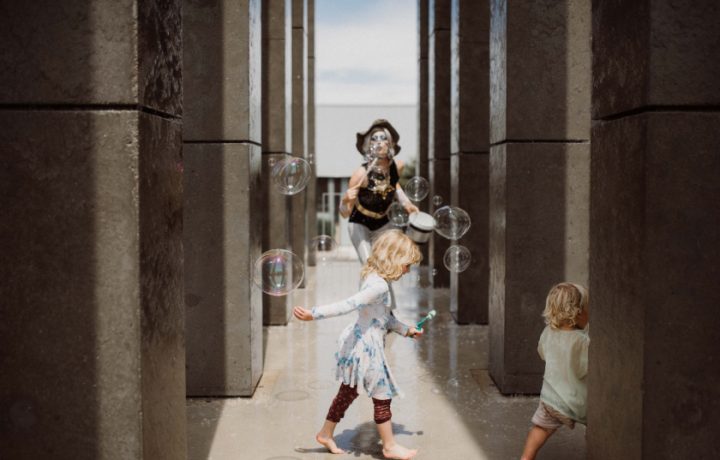Fixing the nation street by street

Posted on
There is a simple solution to Australia’s current epidemic of loneliness, says social researcher and psychologist Hugh Mackay AO—and that solution is found in our streets.
Humans are more hyperconnected than ever before. And yet, more than half of us admit to feeling lonely. A new study from Swinburne University and VicHealth has found more than one in three young adults aged 18 to 25 – those who’ve grown up with social media – report “problematic” levels of loneliness.
A raft of research confirms what we instinctively know: loneliness is bad for us. One recent meta-analysis of several hundred thousand people found that social isolation increased the rate of premature death by 50 per cent. Another study found links between loneliness and increased blood pressure, higher cholesterol levels, depression and Alzheimer’s disease.
We are missing the “single most significant thing” to address the “double whammy of loneliness and social isolation,” Hugh says. This isn’t a job that can be left to politicians, urban planners or even health care professionals to try to solve by themselves. This is a job for neighbours.
Often described as “the man who explains us to ourselves”, Hugh has spent six decades studying and interpreting Australian social trends. In his latest book, Australia Reimagined, he calls a return to the neighbourhood.
He says a host of influences are reshaping the way Australians live: shrinking household sizes, more transient relationships, greater mobility, changing patterns of work and leisure, evolving ideas about gender, religion and politics, increased busyness, new addictions–especially to our smartphones–and declining trust in many of our institutions. When we overlay these trends, it’s easy to see why loneliness and social isolation are on the rise.
And this is why we must reinvent the neighbourhood. The neighbourhood is the “test bed of the nation,” he argues. It is the place in which we must get along with others despite our differences and the “accident of being in the same place”.

Hugh Mackay.
“When people fantasise about where they want to live, it’s usually a village. What they’re really saying is that ‘I’d like to live in a place where we know one another and look out for each other and have incidental encounters when we smile and say hello’. That can be created anywhere.”
Some of the most “unprepossessing and arid suburbs” are home to “active neighbourhoods” filled with people “who’ve made a point of getting to know their neighbours”.
While urban planners play a role in creating spaces that work, and places that are “beautiful, efficient, smart and green” are obviously preferable to those that are not, our “first priority must be to create a space for humans to behave like humans – social beings who need each other”.
Hugh is relatively new to Canberra – he moved here in 2017 after his wife Sheila took a teaching job at ANU. He lives in an apartment building which he says “functions like a little village”.
“People tend to know one another, act like neighbours and look out for each other, at least on nodding terms,” he explains.
Beyond his own neck of the woods, he notes that Canberrans are a friendly bunch. “It would be very unusual that people don’t exchange a greeting, young or old.”
But he also observes a sense of loneliness among people, as our transient population makes it tougher to build community. “If we’ve got people coming and going that can feel lonely for them.”
Hugh will be guest speaker at a Salon Canberra event on Friday 11 October in the Haig Park Experiments Bubble in Haig Park, which transforms our prime minister’s favourite catchphrase from a political put-down to a place for people.
What does Hugh think about the Canberra community coming together to talk about neighbourhoods in a bubble?
“It’s a metaphor for the national stereotype of Canberra that doesn’t have anything to do with whether Canberra functions as a city. When you’re here, there’s no sense of it being an elite, isolated place.”
He urges people not to sit back and wait for others to create the community they want. Instead, we need to start living as if our neighbourhood is the place we want it to be.
“We are wringing our hands about the state of the nation – but the state of the nation starts in our street. Don’t complain about the state of the nation if you’re not creating the type of community you want to be part of in your own street. We can fix the nation street by street.”
HERE’S WHAT YOU NEED TO KNOW
Join us at the BUBBLE to hear from acclaimed social researcher and author Hugh Mackay AO about ‘Why Neighbourhoods Matter’ as part of the Salon Canberra event series.
We invite members of the public to join the event to share and learn from what is guaranteed to be a captivating conversation. Light refreshments will be provided.
RSVP for the event through Eventbrite. Presented by Salon Canberra, the City Renewal Authority and Haig Park Experiments.
Find more information on Facebook


Leave a Reply
You must be logged in to post a comment.